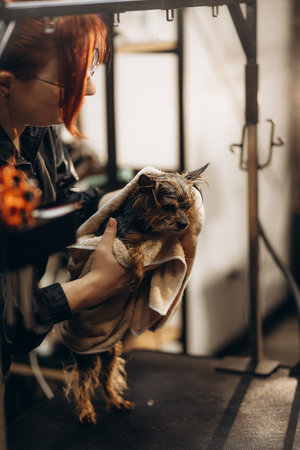Understanding Post-Adoption Support in the UK
Adopting a dog is an exciting and rewarding experience, but it also comes with its own set of challenges—especially in the early days. In the UK, post-adoption support plays a crucial role in ensuring that both you and your new furry friend settle into your life together smoothly. But what exactly does post-adoption support mean? Essentially, it’s a network of advice, resources, and practical help offered by rescue centres, local councils, and animal charities to guide new dog owners through those first important weeks and months. This support is vital not only for helping dogs adjust to their new homes, but also for providing owners with the confidence and tools they need to build a lasting bond. Whether you’re dealing with behavioural quirks, dietary needs, or just need someone to answer your questions about local dog-friendly parks or vets, post-adoption support in the UK is tailored to address these common concerns. By understanding what’s available and why it matters, you’ll be better equipped to give your adopted dog the best possible start in their forever home.
Official Charities and Rescue Organisations
When it comes to post-adoption support in the UK, several established charities and rescue organisations play a pivotal role in helping new dog owners. These groups not only facilitate the adoption process but also ensure that both pets and their people settle into their new lives smoothly. Let’s take a closer look at some of the most prominent UK organisations and the range of services they offer after you bring your furry friend home.
Leading UK Dog Welfare Organisations
| Organisation | Key Post-Adoption Support Services |
|---|---|
| Dogs Trust | Behavioural advice hotline, training classes, free health checks, ongoing owner support, and access to resources on canine care. |
| RSPCA | Follow-up visits, telephone support, behavioural guidance, pet insurance advice, and educational materials about responsible ownership. |
| Battersea | Lifelong advice for adopters, behaviour and training workshops, support groups, and tailored guidance based on the dog’s individual needs. |
How These Services Make a Difference
These organisations understand that adopting a dog is a life-changing commitment. Their support doesn’t end once you leave the centre with your new companion. Whether it’s handling those first-night jitters or navigating unexpected behaviour challenges down the line, these charities provide practical advice grounded in years of experience. From free helplines to in-person training sessions at local centres across the UK, their services are designed to help every adopter succeed—no matter if you’re in bustling London or the rolling countryside of Yorkshire.
Community-Based Support
In addition to official resources, many of these organisations partner with local vets and trainers to ensure you have access to expert help close to home. Some even run community events where you can meet other new dog owners—a brilliant way to build confidence and swap tips over a cuppa. This network of support is invaluable for settling both you and your pup into British pet-friendly life with ease.

3. Accessing Local Council and Community Resources
For new dog owners in the UK, your local council is a fantastic first stop for practical support after adoption. Most councils offer a range of services tailored to responsible pet ownership, including information on dog licensing, microchipping requirements, and guidance on public spaces where dogs are welcome or need to be kept on a lead. Many councils also provide free poo bags at community centres or libraries—a small but handy perk!
Beyond official council services, there’s a wealth of community-based resources that can make post-adoption life easier. Local Facebook groups, Nextdoor communities, and even noticeboards in village halls often connect dog owners to walking buddies, pet sitters, and informal training meet-ups. These groups are a brilliant way to swap advice with fellow dog lovers and find out about upcoming events like group walks or charity dog shows.
Some councils partner with animal charities or volunteers to host free or low-cost dog training sessions and behaviour clinics. It’s worth checking your local authority’s website or giving them a ring to ask about any current schemes—especially if you’ve adopted a rescue who needs extra support settling in.
Don’t forget about the local library! Many have leaflets on everything from recommended groomers to details of nearby dog-friendly parks and cafes. Libraries sometimes host “meet the vet” talks or responsible ownership workshops as well.
Finally, building connections in your neighbourhood can be just as valuable as formal support. Whether it’s joining an organised walking group or simply chatting with fellow owners in the park, these networks are full of tips and can help both you and your new four-legged friend feel right at home.
4. Training, Behavioural, and Socialisation Advice
Bringing a new dog home is an exciting milestone, but it can also be a little daunting, especially when it comes to training and behaviour. In the UK, there are plenty of options to support you and your new companion on this journey. From finding reputable dog trainers to enrolling in group classes or seeking advice from qualified behaviourists, here’s what you need to know to help your pup settle in and thrive.
Finding Reputable Dog Trainers
It’s vital to choose a trainer who uses positive reinforcement and understands the unique needs of rescue dogs. The Association of Pet Dog Trainers (APDT UK) and The Institute of Modern Dog Trainers (IMDT) are two well-regarded organisations that list accredited trainers across the country. Always check credentials and ask about their experience with rescue or adopted dogs before booking sessions.
Group Classes: Learning Together
Group training classes offer socialisation opportunities as well as essential obedience skills. Many local animal charities, such as Battersea Dogs & Cats Home or Dogs Trust, run beginner-friendly classes designed for adopted dogs. These classes not only teach basic commands but also help your dog build confidence around other people and pets. Below is a quick comparison of what different types of classes may offer:
| Type of Class | Main Focus | Typical Cost (UK) |
|---|---|---|
| Puppy Socialisation | Building confidence, basic commands, play skills | £40–£70 per 6-week course |
| Basic Obedience | Sit, stay, recall, lead walking | £50–£90 per 6-week course |
| Behaviour Workshops | Tackling issues like barking, anxiety | £30–£100 per session |
Accessing UK-Based Behaviourists
If your dog is struggling with specific behavioural challenges—such as separation anxiety or reactivity—it’s worth consulting a qualified canine behaviourist. Look for members of the Association of Pet Behaviour Counsellors (APBC), who work closely with vets and often offer both in-person and remote consultations.
Practical Tips for Helping Your Dog Adjust
- Create a Routine: Dogs feel secure when they know what to expect. Set regular times for walks, meals, and play.
- Go Slow with Introductions: Gradually introduce your dog to new people and places; don’t rush socialisation.
- Reward Good Behaviour: Use treats and praise to encourage positive actions rather than punishing mistakes.
- Provide Safe Spaces: Make sure your dog has a quiet area where they can retreat if feeling overwhelmed.
- Stay Patient: Every dog adjusts at their own pace; celebrate small victories along the way.
The right support makes all the difference in helping your adopted dog settle into British life. Whether you’re booking a class in your local village hall or chatting with an expert online, there’s plenty on offer to guide you both towards a happy future together.
5. Health and Veterinary Support
One of the most important steps after adopting a dog in the UK is making sure your new companion receives top-notch health care. Here’s what you need to know to keep your pet healthy and happy in their forever home.
Registering with a Local Vet
The first thing on your to-do list should be registering your dog with a local veterinary practice. Most neighbourhoods have several vets, and many pet owners choose based on recommendations from friends or local community groups. Registering early ensures that if there’s an emergency, your pet will have immediate access to care. British vets are well-versed in dealing with rescue pets and can offer tailored advice for newly adopted dogs, including vaccination schedules and parasite control.
Accessing Microchipping Services
Microchipping is a legal requirement for all dogs over eight weeks old in the UK. If your adopted dog hasn’t been chipped by the rescue centre, most vets provide this service quickly and painlessly. Having your details linked to the microchip means that if your pup ever goes missing, you have a much better chance of being reunited. Make sure to update your contact information any time you move house or change phone numbers.
Pet Insurance: A British Essential
Vet bills can quickly add up, especially if unexpected health issues arise. Pet insurance is highly recommended across the UK and offers peace of mind against costly treatments or accidents. There are plenty of providers offering different levels of cover—from basic accident-only policies to comprehensive lifetime plans. Shop around using comparison sites, and read the small print to ensure pre-existing conditions are covered if relevant.
Regular Check-Ups: The UK Approach
Brits take preventive care seriously when it comes to pets. Regular check-ups (usually every 6–12 months) help catch health problems early and allow your vet to keep vaccinations up to date. Many vet practices offer ‘health plan’ packages which spread the cost of routine treatments like boosters, flea and worming treatments, and annual health checks across monthly payments—making it easier for you to budget while keeping your furry friend in tip-top shape.
Top Tip for Dog Owners
If you’re new to an area or unsure where to register, ask fellow dog walkers at your local park or join a neighbourhood social media group for trusted recommendations on vets who are friendly, affordable, and experienced with rescue dogs.
6. Online Forums and Peer Support Networks
For many UK dog owners, especially those adjusting to life with a new rescue pup, online forums and peer support networks are invaluable lifelines. These digital spaces offer a welcoming environment where adopters can share their stories, swap advice, and ask questions—often at any hour of the day. With the British love for both pets and community spirit, it’s no surprise that these platforms have flourished across the country.
Popular British Dog Communities
Among the most well-known UK-based forums is The Dog Forum UK, which features dedicated sections for newly adopted dogs, behaviour concerns, health queries, and even local meet-up groups. Members range from first-time adopters to seasoned trainers, creating a friendly blend of perspectives rooted in real-life British experiences.
Facebook Groups: Localised Advice & Camaraderie
Facebook remains a hub for dog lovers across Britain, with countless groups tailored to specific regions or interests. For example, “UK Dog Owners Advice & Support” is packed with helpful threads on everything from settling nervous rescues to recommendations for local pet-friendly cafés. There are also breed-specific groups—like “British Labrador Owners”—and even hyper-local communities such as “Dog Walkers of South London.” The beauty of these groups lies in their sense of camaraderie; members frequently organise park meet-ups and offer real-time tips about vets or trainers in your area.
Advice Forums and Specialist Networks
If you’re seeking expert input alongside peer support, platforms like Pawsitive Living UK combine professional articles with active discussion boards. Here, topics range from positive reinforcement techniques to navigating post-adoption hiccups unique to British homes (think muddy garden paws or Bonfire Night nerves!). Many UK charities also host their own advice forums—Dogs Trust and Blue Cross provide moderated spaces where adopters can interact safely with staff and fellow dog parents.
No matter where you live in the UK—whether it’s bustling Manchester or the Cornish coast—these online networks make it easier than ever to tap into collective wisdom. They’re perfect for sharing those little victories (“My rescue finally slept through the night!”) or getting reassurance when things feel overwhelming. In true British fashion, you’ll find plenty of empathy, encouragement…and probably a few tea recommendations along the way!
7. Long-Term Support and Follow-Up
Adopting a dog in the UK is just the beginning of your journey as a responsible pet owner. Many charities, local councils, and animal welfare groups understand that settling into life with a new dog can be a long-term process, so they offer ongoing support to help both you and your furry companion thrive. These touchpoints are designed to ensure that every adopted dog finds stability and happiness in their forever home.
Home Visits: Friendly Check-Ins
After adoption, it’s common for organisations such as Dogs Trust, Blue Cross, or local rescue centres to schedule home visits. These friendly check-ins are not meant to catch you out but to provide practical advice tailored to your living situation. Volunteers or staff might suggest tweaks to your environment—like securing your garden or offering enrichment ideas—and answer any questions you have about behaviour, feeding, or health concerns.
Post-Adoption Check-Ins: Ongoing Guidance
Support doesn’t stop after the first few weeks. Most UK charities offer regular post-adoption check-ins by phone or email during the initial months. This allows them to track how your dog is settling in and spot any early signs of stress or adjustment issues. It’s also your chance to discuss training progress, ask for behaviour tips, or seek recommendations for local vets and trainers who use positive reinforcement methods.
Helplines and Community Resources
If challenges pop up unexpectedly—be it barking, separation anxiety, or health niggles—many charities maintain helplines staffed by experienced advisors. Battersea Dogs & Cats Home, for example, runs an advice line for both new and seasoned owners. Additionally, some councils partner with animal behaviourists or host community drop-in sessions where you can meet other adopters and share experiences over a cuppa.
This long-term safety net means you’re never alone on your pet parenting journey. Embracing these resources can make all the difference in building a loving bond with your adopted dog and ensuring they truly feel at home in their new British life.


